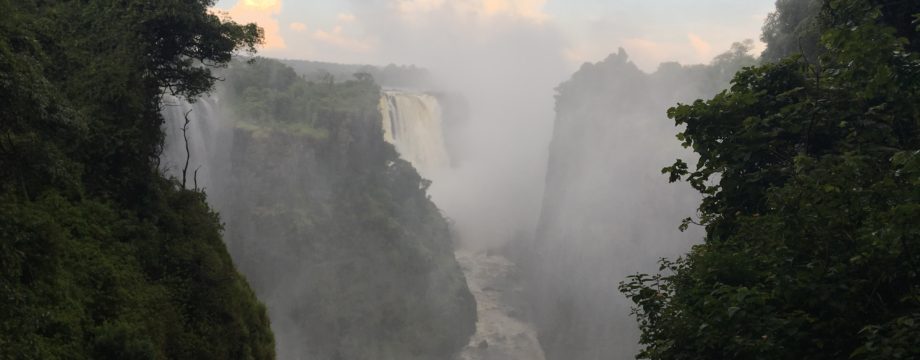This article was originally published on Cache Up NB. It has been mirrored here for archive purposes only.
One of the many aspects to the sport/hobby/game of geocaching is that much of our playing field is “out” there. By “out”, I am referring to the great outdoors. The very technology which we use to enjoy geocaching is in fact uniquely tied to the outdoors. However one part of the outdoors is something that in many cases, we don’t take into consideration: who owns the outdoors?
Whenever you find a cache, regardless of whether it is on a nicely groomed trail, in the middle of the city, or a 500M bushwhack into nowhere, you are on a piece of property. Someone or some entity (city/person/company/province) owns that particular piece of property and by placing or finding a cache there, you are in fact entering onto someone else’s grounds.
In the cases of public parks, maintained trails, and much of the unused woodland that we see around us, most folks generally assume that these types of properties are safe bets for hiding and finding. Unless a provincial or municipality has expressly forbidden it, or has specific geocaching guidelines (such as national parks), most of those types of areas are generally considered to be safe areas to hide caches.
By “safe”, I refer to the lack of explicit permission from the land/property owner being required. I don’t necessarily have to go out and request permission to hide a cache because although it’s not “public” property, it’s not what most would consider “private” property. When folks hear the term “private property”, they typically think of a person’s home, or business, not necessarily parks or trails. Mind you, a person’s home could span a large area if they have a large lot. But generally speaking, we’re talking about smaller residential homes and businesses.
For example, going out and hiding a cache on someone’s lawn would be considered bad etiquette unless they gave you permission to do so. The same would be said about hiding a cache on a business’s property. But yet, there seems to be some leeway when it comes to things such as parking lot caches, and other similarly hidden containers. Do you have permission to hide a lamp post cache in a Walmart parking lot? Or how about under a flag pole near a hotel? Are those considered private property, or is it ok? There’s also the geocaching term “Frisbee Rule” which “…basically states that it should not be necessary to ask permission to place a geocache anywhere that you would not be required to ask permission to play Frisbee. It should be noted that this is not geocaching.com’s official position.” (Taken from the GeoLex).
Until recently, I had not had to deal with the issue of private property as I have always tried to hide my caches in places that were either considered public property, or at least part of property that was accessible to anyone (such as trails, parks, etc). I more or less followed the general idea that as long as I am not hiding something in someone’s back yard, or directly at a business, it should not be an issue. However, recently I discovered I had hidden a few caches on private property completely by accident. What did I do?
When I realized where I was, and that I had in fact accidentally ended up in someone’s back yard, I paused for a moment and pondered what I should do. There was a part of me that thought I should just duck into the woods and go around, but then I thought it was better to just do what should be done. I walked right up to the door, rang the door bell, and spoke to the property owners.
I learned much about where I had been hiding caches and indeed a few of the ones I had hidden were on their property, and they gave me full consent to leave them there. Turns out their property intersects with old ATV trails so they had been used to seeing ATVers in the area. I was told that as long as cachers were not going on their driveway/front lawn, they had no issues with people doing finds in the back woods part of their lot. I gave them a Cache Up NB flyer which has all the details on geocaching, gave them my name, shook their hands, and went on my way. Further to that, I even made a point of creating new trail markers on a side trail to allow cachers to find the first/last cache on the trail (depending on which end you come in from) without having to even go near their home. To me, I thought this went above and beyond what was necessary, and showed respect to them as well as appreciation for allowing me to keep the caches I had hid.
The whole point though is to insure that if when you hide a cache, you suspect that cachers may encroach on private property either on purpose or by accident, you take the necessary precautions to avoid this. Talk to property owners. Make them aware of what you have done and what may happen. You need to be completely open about everything, and provide a means for them to contact you if there is an issue. You may want to hide a cache somewhere, but if the property owner says no, then that means no. If I were contacted tomorrow by the property owners I spoke to, and asked to remove the caches, I would indeed comply immediately.
It is however unfortunate that I have seen numerous instances where extremely poor judgement has been exercised and caches have been placed in what was clearly private property. Whether it be bushes in someone’s front lawn, or local businesses that do not want cachers around. It is these instances where geocaching can be given a bad name and we must all do our part to insure we work with property owners, not against them.
Have you worked with property owners before to insure that your cache placements were ok? Have you ever been asked to remove a cache (yours or one you found) by a property owner because it was hidden without consent? What are your experiences in dealing with geocaching and private property?



6 Responses to Respecting private property